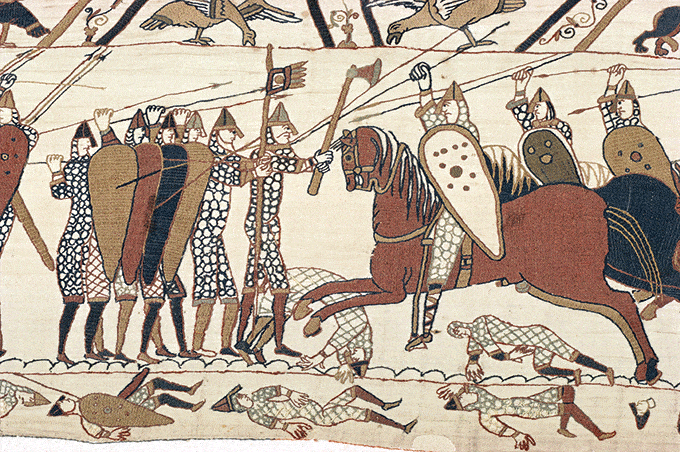
ADVERTISEMENT - CONTINUE READING BELOW
The Napoleonic Wars’ Most Important Engagement Was the Battle of Leipzig
In 1812, Napoleon’s invaded Russia with a Grand Armee of 685,000 men, only to reemerge with 120,000 cold and hungry survivors. That catastrophe shattered his domination of Europe, as client states and subject nations rushed to shake off French hegemony. Napoleon raced back to France, where he raised an army as big as the one he had just lost, but one of lower quality and less experience than the veteran force destroyed in Russia.
He marched into Germany to reassert French dominance, and won some victories. He was unable to secure a decisive win, however, as his enemies avoided pitched battle with him. Instead, they fought his subordinates, and beat them as often as not. Finally, in October of 1813, Napoleon’s foes were confident enough to challenge him directly. The showdown took place at Leipzig between Napoleon’s army of 225,000 men, and a 380,000 strong coalition of his enemies.
Although outnumbered by the allies, who sought to surround him, Napoleon decided to attack. Operating along interior lines he took advantage of that to concentrate against enemy sectors faster than they could be reinforced by his foes, who operated on exterior lines. Fighting commenced on October 16th, and the first day ended in a hard fought stalemate: allied attacks were defeated, while Napoleon’s outnumbered forces failed to secure a breakthrough.
The next day saw limited fighting. By the 18th, Napoleon was running low on supplies and munitions, and prepared to retreat. His foes launched a massive attack all along the line that day, and gradually pushed Napoleon’s forces back into Leipzig. Then the bottom fell out, when Napoleon’s Saxon allies pulled off a well timed double cross on the afternoon of the 18th. With Napoleon’s forces already stretched to their limit, a Saxon corps of about 10,000 men occupying a sector of the French line suddenly abandoned their positions, and deserted to the allies.
ADVERTISEMENT - CONTINUE READING BELOW
Napoleon’s forces had to abandon that entire sector. That night, with his position untenable, Napolen began a withdrawal. It went smoothly at first, but the following day, incompetence led to the premature blowing up of a bridge while it was still crowded with retreating Frenchmen. A panic ensued, in which thousands were killed, while tens of thousands more were stranded on the wrong side of the destroyed bridge and captured. That transformed the battle from an arguable tactical draw into a catastrophic French defeat.
It was Napoleon’s defeat at Leipzig that sealed his doom. The Battle of Waterloo gets more ink, but even if Napoleon had won at Waterloo, he would have still lost the war. He simply lacked the resources to overcome the overwhelming odds that would have faced him once the Austrians and Russians, who had taken no part in the Waterloo campaign, made an appearance and joined the British and Prussians. By contrast, a victory at Leipzig could have allowed Napoleon to negotiate a peace that might have allowed him to keep much of his empire.

